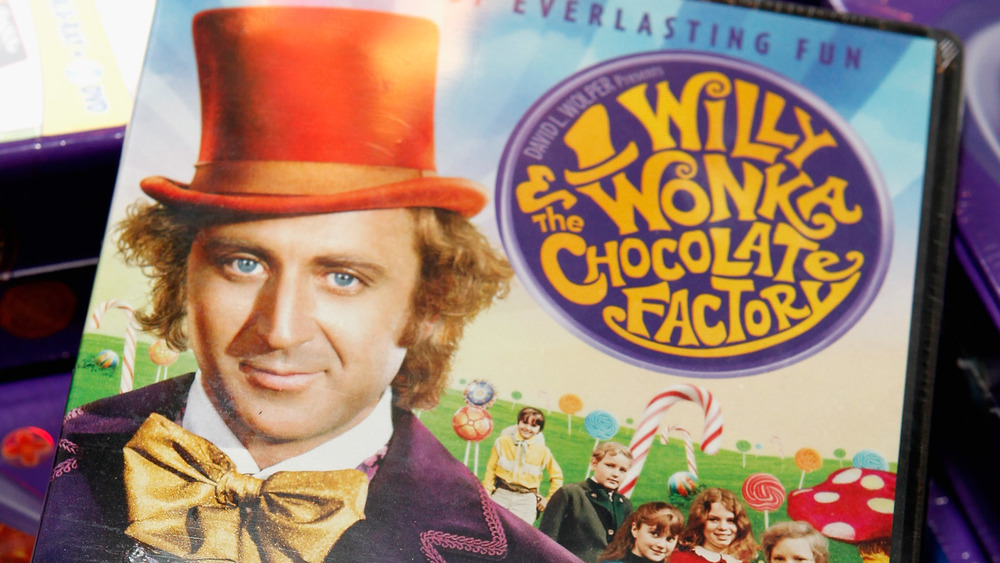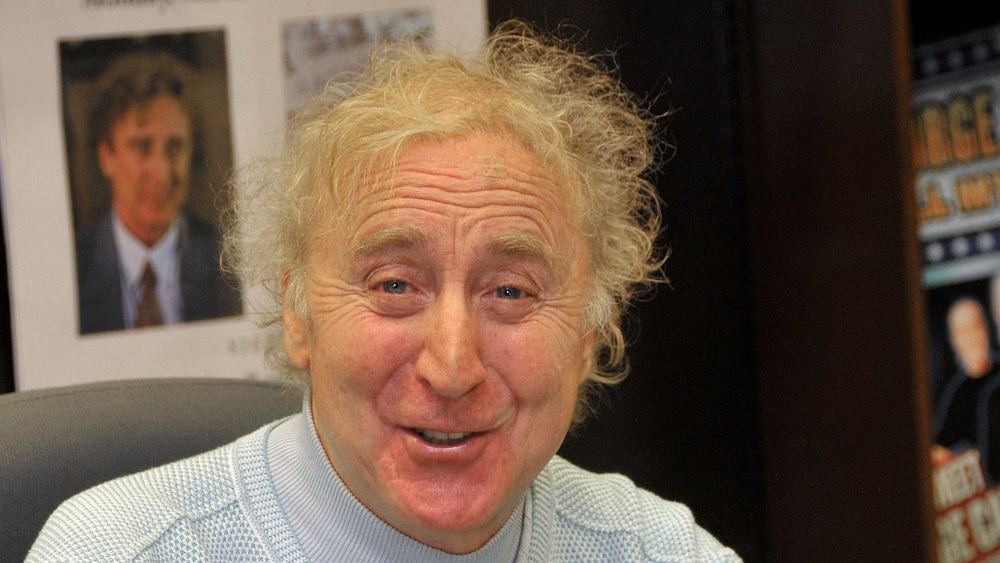Gene Wilder Had One Requirement When It Came To Playing Willy Wonka
It's hard to imagine a childhood without Willy Wonka & the Chocolate Factory. The first (and arguably best) adaptation of Roald Dahl's 1964 book first charmed young audiences in 1971 (per IMDb), and it's enjoyed countless airings ever since. But one has to wonder: Would the film have become iconic if someone else had played Willy Wonka? Believe it or not, that actually might have happened if not for one key agreement during casting.
As Looper explains, Gene Wilder's career was just starting to take off at the time, thanks to his hilarious turn as the nebbishy, blue blankie-clutching Leo Bloom in The Producers. (He would later go on to star in two other classic Mel Brooks films: Blazing Saddles and Young Frankenstein). He seemed the perfect choice to play Dahl's eccentric candymaker, as the book describes him, "How clever he looked! How quick and sharp and full of life! He kept making quick jerky little movements with his head, cocking it this way and that, and taking everything in with those bright twinkling eyes. He was like a squirrel in the quickness of his movements, like a quick clever old squirrel from the park." (via Roald Dahl's website)
Wilder was flattered to be considered for the part, but he had one deal-breaking demand before signing on.
Wonka's grand entrance was Wilder's idea
Wilder revealed in a 2002 interview with Larry King (as told by The Hollywood Reporter) that, having read the book, he had an idea that would establish the character of Willy Wonka from the start. "I said, 'Well, I'll tell you, I will do it if I can come out, and all the crowd quiets down, and I am using a cane.' Oh, my God. Willy Wonka is crippled. 'And I walk slowly and you can hear a pin drop. And my cane gets stuck in a brick. And I fall forward onto my face and do a forward somersault and jump up, and they all start to applaud.'"
This clever move, he explained, would ensure that no one would ever be sure whether the chocolate genius was telling the truth at any given time. Director Mel Stuart asked Wilder whether he would refuse the role if the stunt wasn't written into the script, and the actor replied, "'That's what I'm saying.' And I meant it."
Wilder's instincts, as it turns out, were right on target. The scene remains imprinted in audiences' minds and helped establish the comedian as a star. While the film was a box office bomb (per Insider), it gained a huge following over the years thanks to DVD, cable, on-demand availability — and the quirky appeal of Wilder.

